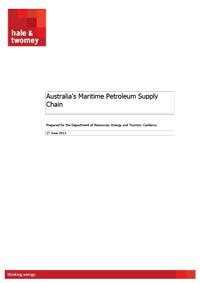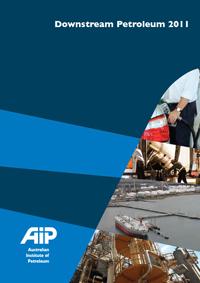Resources
Date
Description
Transport fuel imports do not increase risk for supply reliability and security A diversity of global supply sources and local import facilities provide a range of options for Australia. Australia is already dependent on imports to meet the growth in demand for transport fuels (eg. demand…Date
Description
Australian refineries continue to operate with no indications of any plans to close the remaining four There have been statements and Inquiry submissions from all refining companies about their future refinery investment plans and the ongoing role of these facilities in meeting customer…Date
Description
Self-sufficiency in transport fuels is not necessary for supply security Security of supply is the result of resilient and efficient supply chains and robust risk management – it is not about self-sufficiency or independence from markets. There are 3 critical elements of any strategy to…Date
Description
AIP member companies provide very reliable supplies of fuel to the Australian market and: represent around 90% of primary fuel supply to the Australian market, have decades of operational experience in Australia and Asia delivering high quality fuel to customers, have major…
Date
Description
In 2013, Hale and Twomey was engaged by the Federal Department of Resources, Energy and Tourism (DRET) to examine and report on the maritime supply chain and the key role it plays in Australia's petroleum supply chain. The report considers how the maritime supply chain operates for Australia and…Date
Description
The Federal Government has introduced regulation of the quality of petrol and diesel fuel in Australia. The principal drivers of the fuel quality regulation are environmental. The adoption of emerging vehicle engine and emission control technologies is a key strategy in the management of ambient…Date
Description
The Australian Institute of Petroleum (AIP) in conjunction with petrol manufacturing and importing member companies have decided to remove dye from unleaded petrol and E10 (regular unleaded petrol with 10% ethanol added). This change will not have any impact on the fuel’s performance or on…Date
Description
AIP produces an industry report – 'Downstream Petroleum' – which provides a concise overview of downstream petroleum refining and marketing in Australia. The report, compiled every two years, covers the financial performance of the industry and the future challenges it faces.Date
Description
The Australian Institute of Petroleum (AIP) advises that petrol manufacturing and importing member companies are currently in the process of changing the industry controlled standard colour (dye) of unleaded petrol (i.e. 91 Research Octane Number grade) from Purple/Bronze to Red/Orange. This colour…
Date
Description
The Australian Institute of Petroleum (AIP) today released 'Downstream Petroleum 2011', the new edition of AIP's biennial publication on the state of the Australian downstream petroleum industry and its financial performance. This latest report provides a concise overview of recent developments…